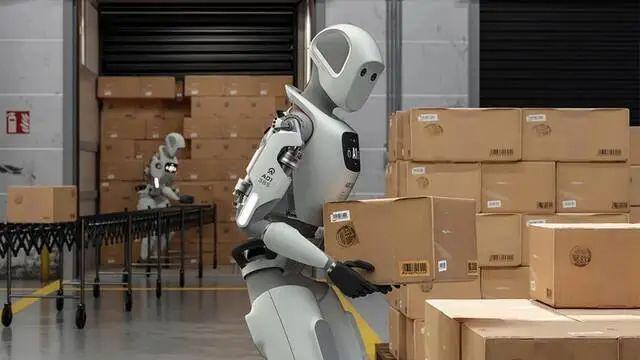Artificial intelligence may lead to "social idleness" at work
Produced by New York TimeWelcome to reprint, please specify signature and add public nameAccording to the New York Post on October 18thThe phenomenon of social laziness - where colleagues stop trying their best because they believe others will take on their work for them - typically occurs in human groups, whether in offices or school projects.New York Post News ScreenshotBut as robotics technology gradually integrates into the workplace, researchers have investigated the universality of this phenomenon between humans and automation technology, and found that in group environments, people are less willing to put in effort because they can rely on robots to complete tasks

Produced by New York TimeWelcome to reprint, please specify signature and add public name
According to the New York Post on October 18thThe phenomenon of social laziness - where colleagues stop trying their best because they believe others will take on their work for them - typically occurs in human groups, whether in offices or school projects.


New York Post News Screenshot
But as robotics technology gradually integrates into the workplace, researchers have investigated the universality of this phenomenon between humans and automation technology, and found that in group environments, people are less willing to put in effort because they can rely on robots to complete tasks.
The author of the research report, Dietlind Helene Cymek, said in a statement: "Teamwork is a double-edged sword
She also added, "Teamwork can motivate people to perform well, but it can also lead to a loss of motivation because individual contributions are less prominent
The study, published in the journal Robotics and Artificial Intelligence Frontiers, tested the work efficiency of 42 participants and asked them to rate their efforts and performance after the experiment by observing errors on circuit boards within 90 minutes.
Half of the participants were informed that their circuit boards had been inspected by the robot "Panda", but they did not work directly with the robot.
Although there was no difference in the time spent observing the circuit board between the two groups, participants working with 'pandas' found fewer errors and seemed to' not search for defects as carefully as participants working alone '.
Despite laboratory limitations in the experiment, researchers warn of the potential consequences of "social laziness", especially in terms of workplace safety.
Dr. Linda Onnasch, co author of the study, said: "In longer working hours, when tasks are routine and the work environment provides little performance monitoring and feedback, the loss of motivation is often more severe
She also said, "Overall in the manufacturing industry, especially in areas related to safety where double inspections are common, this may have a negative impact on work results
Tag: Artificial intelligence may lead to social idleness at work
Disclaimer: The content of this article is sourced from the internet. The copyright of the text, images, and other materials belongs to the original author. The platform reprints the materials for the purpose of conveying more information. The content of the article is for reference and learning only, and should not be used for commercial purposes. If it infringes on your legitimate rights and interests, please contact us promptly and we will handle it as soon as possible! We respect copyright and are committed to protecting it. Thank you for sharing.


